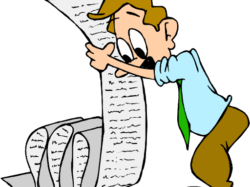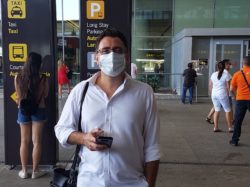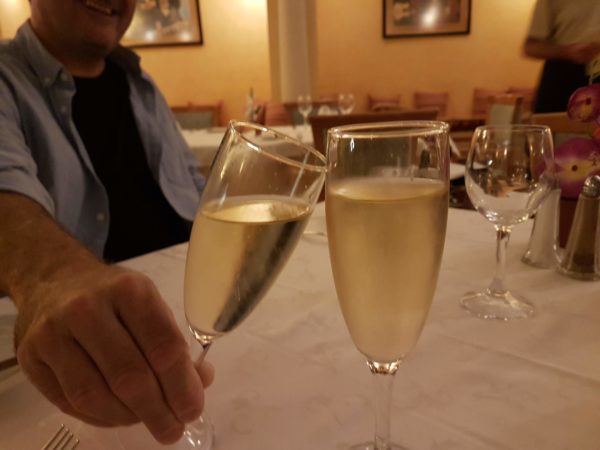This Buyer’s Guide has been fully updated.
We have combined and expanded our guides into one complete, up-to-date Buyer’s Guide to reflect the current property buying process in Spain.
👉 You can view the updated guide here.
Welcome to Part 2 of our Ultimate Buyers’ Guide to Buying a Property in Spain
This is part 2 of our Ultimate Guide to Buying a Property in Spain. If you haven’t read the first part of our guide, please click here to read it.
In part 1 of our guide to buying a property in Spain, we covered four key steps. With many of us in different lockdowns whether in Spain or abroad, I wanted to show you that so much can be done from the comfort of your own home. Rather than flying to Spain and being sent on a wild goose chase, some clear planning can make that journey far more productive. In addition to that, it may also mean that you have time to enjoy a holiday at the same time. Preparation is key and takes the stress out of the process.
To recap, the four steps we looked at in part 1 of this guide to buying a property in Spain, included:
- Step 1 – Head or Heart? Why do you want to buy in Spain? Is it for investment or for enjoyment?
- Step 2 – Creating the vision – start by building a picture of what you want.
- Step 3 – Budgeting – how to go about establishing a budget. Things to take into consideration when planning.
- Step 4 – Finding the right agent
To find out more about each of these steps, please read part one of The Ultimate Guide to Buying a Property in Spain
Step 5 – Making it Real – The Property Search
This is a really exciting step in this Spanish Property Buyers’ Guide. Up to now most of your work will have been on building a vision, establishing a budget, and doing the groundwork. Now it is time to get down to the real search. This is the start of making the vision you had, a reality. What steps 1-4 have done in our ultimate guide to buying property in Spain, is set up a strong foundation. With this in mind, the search can begin. I would recommend that you also read step 6 and carry out both steps 5 and 6 in parallel.
1. Start with confidence
Equipped with your list of features, estimated budget, and idea of what your ideal property will look like, make contact with your chosen agent(s) and share this information with them. If your agent is a specialist in your chosen area, they will be able to build a great portfolio of potential properties that meet your criteria. They can very quickly give you an idea of what may or may not be achievable in your budget. Communication is key.

Personally, I like to be included in the initial search and to work hand in hand with my clients. I am happy to adapt to the communication method clients prefer – be it through video conference, WhatsApp, email, telephone, or face to face if possible. Whilst we have most properties advertised on our website, sometimes there are properties that are not published. For example, new deals sometimes come onto the market and don’t even make it to the website. We also have sellers who do not openly want to market their properties for personal reasons.
I would recommend that you register your property requirements with us so that we can send you an alert when a new listing comes in, even before it hits our website.
2. Search Online
The internet is a fabulous tool. It can also be overwhelming. Sometimes, there is almost too much information, and at times, it is not accurate nor up to date. However, it will complement the search. An online search will help to give you a feel of what is possible to buy in your budget. It is also a fantastic way to find out more about the area.
3. Make the most of the expertise
I suggest to clients that as they search the web that they send me links to any property they like the look of. Nine times out of ten I will know or have access to the properties they select.
I will also be able to offer practical advice on individual properties, such as, whether it is located near the beach, or near an electricity pylon, accessible for disabled persons, or close to a busy main road. The internet is great and photos are fabulous but they may only tell you half the story. My job as an agent is to complete the story.
Let the agent guide you through the process. If your agent has a good collaboration network, they will have the resources to tap into most properties in the area. By seeing links to the properties you send them, they will be able to use their network of agents and go into the marketplace to find other properties that will fit your criteria.
There is a myth about real estate agents in Spain. Many clients believe that they will be charged extra if they don’t go directly to the listing agents. In reality, there is a good collaboration network of agents on the Costa del Sol. Many agents are members of multiple listing service networks. They agree to share properties and split commission so that the price is the same regardless of which agent you use.
3. Filter down the search
If you have a long, overwhelming list of ‘potential properties’, it is time to filter them down into a shortlist. Here are some of the things you can do to refine your list.
Videos add dimension and are a good way to filter down a search. We, as a company are investing a lot more energy in videos, because we find clients can more easily feel the vibe of a house through this mode.
Video of a two-bedroom penthouse for sale in Duquesa Village
Come View with Me – we set up a series of videos aimed to give you more personal tours of some of the properties we sell.
Urbanisation Reviews – ask your agent for more information about the urbanisations that the properties you like are in.
- How well is the urbanization maintained and how well are the community funds managed?
- What are the community fees like and are there any major works being undertaken that will require a top-up to the fee?
- What facilities are there?
- Is it accessible for disabled persons?
- What is the security like?
- Is there underground or on-street parking?
We have started developing a list of urbanisation reviews to help clients through the process. Buying a home is as much about your lifestyle and surroundings, as the property itself.
Sound out ideas with your loved ones – this may seem obvious but it is often the case that we assume that partners and families want the same thing that we want. This is often not the case. You may find that discussing possibilities and ensuring that the properties you have selected meet your lifestyle needs as a family unit, help you to filter down that list of properties.
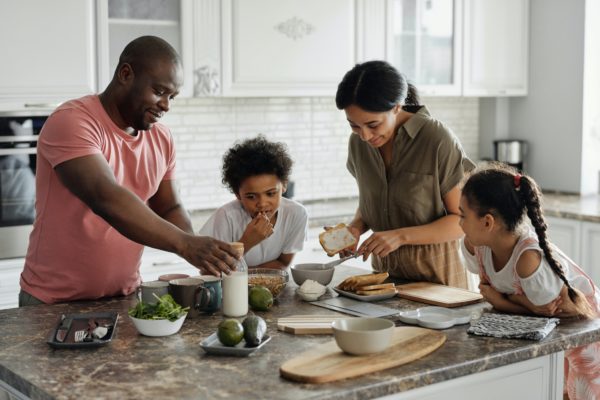
4. Viewings
After you go through the above points, you should have a shortlist of properties you wish to view. In an ideal world, you would book your flights, book out some time off work and start making viewing appointments to visit these properties in person. However, there is a further step you can take prior to a physical visit.
If after going through property information, photos and videos, you still like the look of a property, then you should ask your agent to carry out a virtual viewing.
Virtual Viewings are never the same as physical viewings. However, they are good as an initial viewing. In this current climate, there are many benefits to virtual viewings. Firstly, you do not need to wear a mask!!! Secondly, you can socially distance! Whilst we do have special COVID19 protocols in place, it is safer for buyers and sellers. It, therefore, makes sense to see a property virtually first before taking that trip to view it in person.
The thing that works well about virtual viewings is that you as a client get one-to-one time with your agent, at the properties you select. Whilst an agent may send you a video of the property, a virtual viewing allows you to ask questions tailored to your individual needs.
Hints and Tips to prepare for virtual viewings :
- Internet Connection: Make sure you have a good, speedy, internet connection. Technology is great but when it fails, it can be a nightmare.
- Test the connection and platform you plan to use before the scheduled virtual viewing. Your agent should send you a link to test this beforehand.
- Mute your microphone: Mute your microphone whilst you are nor speaking, especially if you have other noises in the background
- Time: Try and select a time when the daylight is good.
- Write down your questions: Watch the property video your agent has sent you and make a note of things you want to see more of and questions you want to ask. In a pre-recorded video, you may not see things in detail. For example, you may want to know more about the view from a window. Alternatively, you may be interested to see more of the outside area – your agent can walk you through the communal gardens. On a practical note, you may want to see how big the electric water heater is – you can ask the agent to show you the boiler.
Second Viewings
It has come to that time – decision time! After seeing all the properties for a first viewing, you should be in a position where:
- You have one favourite
- Have a shortlist of two or three properties that you love
It is best to do this second viewing in person to get the feel of a property. However, if you know the area and urbanisation in question, then it is perfectly feasible to take the next step forward. If you are purchasing as an investment, you may also be happy to purchase without physically viewing. The physical viewing is more about the emotional pull towards a certain property and is most important if the home is to be your own first or second residence. Check out step one for more on this.
Step 6 – Preparation is key – Getting Paperwork in Order
I have made this step 6 – although in actual fact this step should really take place in parallel to your search.
Paperwork can take a long time to process. Much of it will be outside anyone’s control and depend on external appointments. It can be really disappointing if you need an NIE number but can’t get an appointment for another 3 months. My advice is to work on this step as soon as you make the decision to buy on the Costa del Sol. It will help the process to go along smoothly.
1. Appoint a good lawyer to represent you
It is important to appoint a lawyer to do the property conveyancing. Whilst your real estate agent should have done basic property checks, a lawyer will be better qualified to carry them out in detail. Choose a lawyer that knows the area in which you are buying property and has good working relationships within the municipality. It pays to get the paperwork right at the start.
In Spain, each region works slightly differently, so it is good to use a lawyer who personally knows the land property registry office, town hall and notary in the region where the property is located. It is not only what you know, but who you know. I would also advise, that you select a lawyer who speaks the same language as you and has worked with other clients who come from your country of residence.
Whilst it is good to let the lawyer take over the paperwork, it never goes amiss to understand some of the key jargon yourselves. Check out our blog on key property jargon.
If you live outside of the area that you are buying in, I would definitely recommend that you give a power of attorney to your lawyer so that they can sign on your behalf. The power of attorney will also enable them to apply for an NIE number and other official documents needed, without you having to fly over in person.
A Power of Attorney can be organised either when you are in Spain or from abroad. It takes a long time from abroad as it is all done via post and your local notary but if you know that you will not be able to travel in a while, it is good to set one up as soon as you decide to buy.
We work with a number of experienced legal firms on the Costa del Sol. We are happy to recommend some to our clients if necessary.
2. Get an NIE (Número de Identidad Extranjero) number
An NIE number is an identification number for foreigners. You will need this number for any activity you need to conduct in Spain from purchasing a home or car to getting a phone contract or starting up your own company.
You can do this in person, here in Spain. Check out our blog on how to apply for an NIE here for the complete process, for a step to step guide.
You can also apply from abroad through a consular office (below is a link to the Consulate of Spain in London). However, I would recommend that you get your lawyer to apply on your behalf using a Power of Attorney.
3. Start working on the mortgage if you need bank finance
In Step 3, I discussed the budgeting process. You would have looked at your finances and calculated how much mortgage you need. Now it is time to take this further. I suggest that whilst you embark on your search you also carry out initial interviews with different banks and brokers to find out what they require from you in terms of paperwork. This is something that could also be initiated virtually. Whilst starting your property search, you can start collating the paperwork which is likely to include wage slips, existing loan/mortgage details, proof of employment etc. By having these to hand, banks can give you an offer in principle. This will speed up the purchase process.
Moving from an offer in principle to a firm offer is much quicker than waiting till you decide on a property before starting the mortgage process from scratch.
Step 7 – Securing the property
Hang in there! The hard work will pay off very soon. This is the final step of our Ultimate Buyer’s Guide to Purchasing a Property in Spain.
1. Making an offer
So, you have found your perfect property – it’s time to make an offer. The amount of flexibility on the price can vary greatly between properties. Each case is different. Some sellers who are keen to sell quickly, will price their properties at or below market price and will be prepared to accept offers. On the other hand, there are some sellers who know that buyers like to negotiate and prefer to build in a margin of negotiation into the asking price. Your agent should be aware of each seller’s situation and should be able to advise you accordingly before you decide what offer to make.
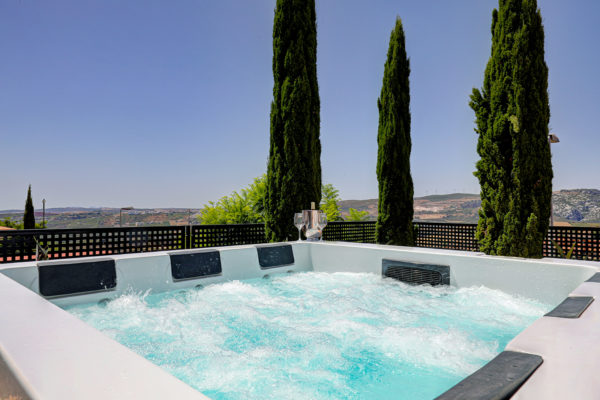
Most “new build” developments sell at a fixed price and generally do not accept offers. Bank repossessions are sold as seen and offers are very rarely considered.
When making an offer, you should keep in mind the maximum amount you are willing to pay for the property ( see budgeting in part one). It is also good to discuss what exactly is included in the price. Does it include furniture, white goods etc?
The seller may decline your initial offer but come back with a counteroffer for you to consider.
We strongly recommend that you let your agent do the negotiating on your behalf.
2. Reserving the Property
Each sale is different, but, in general, it is a 3 step process:-
- Sign a reservation contract and pay the reservation deposit.
- Sign a private purchase contract and pay the balance of 10% deposit
- Completion of the purchase at the notary
Reservation contract and deposit
Once your offer is accepted, you need to reserve the property by signing a reservation contract and paying a reservation deposit.
A property remains on the market until a deposit is paid so it is essential that, once you have decided on the property and have an offer accepted, you do not delay in paying the deposit.
Your agent will draw up a simple reservation contract. The contract will state the buyer’s and seller’s details, the property details, the agreed price, and payment schedule.
Both buyer and seller sign the contract. At this point, the deposit is paid. In general, the initial reservation deposit is 6,000€.
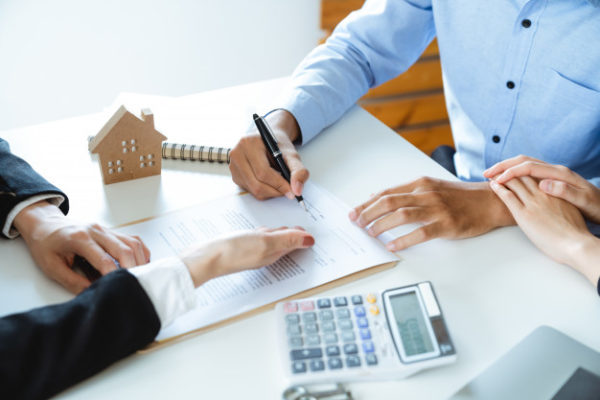
It is common practice that the buyers pay the initial deposit to either their agent’s client account or to their lawyer.
At this point, your lawyer should request the documentation of the property and check that everything is in order.
Once the deposit is down, the property is off the market. The Spanish law makes it difficult to be gazumped. If after this point, the seller changes their mind, they will, according to Spanish law, have to pay you back twice the amount of the deposit paid. If you, as the buyer pull out, you will lose your deposit. So, at this point, you can take a deep breath as the property is now secured for you.
This is where the dream really starts to become a reality.
3. Private Purchase Contract and 10% deposit
The private purchase contract is known as the Contrato de Arras in Spanish. It will normally be drawn up between the lawyers representing the buyers and sellers and is normally written solely in Spanish. As with the reservation contract, the private purchase contract will also state the buyer’s and seller’s details, the property details, the agreed price, and the final deadline date by which the sale must be completed.
This contract will also include the terms and conditions of the sale as agreed between buyer and seller. If a deal has been made where furniture is to be included, the agent you are working with should make a list of the inventory to confirm what is staying and include this as an appendix to the contract.
I, personally, like to do a photo inventory, as, in that way, you know exactly what you are getting.
In general, the private purchase contract is signed around 2 weeks after the signing of the reservation contract.
On the signing of the private purchase contract, the final deposit is paid. This deposit is 10% of the purchase price, less the 6,000€ already paid as a reservation deposit. For example, if the purchase price is 200,000€, the second deposit will be 14,000€ (10% of 200,000€ = 20,000€ minus 6,000€ already paid = 14,000€).
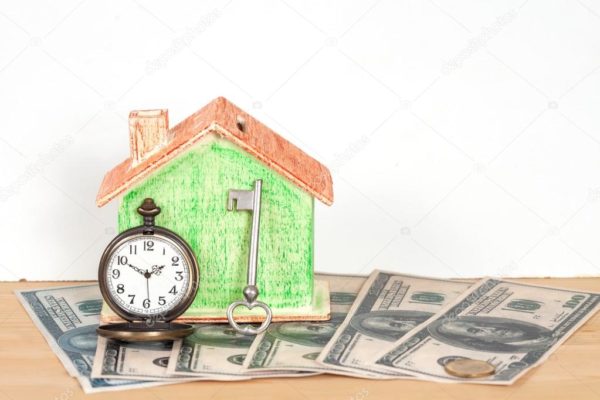
The payment is made either directly to the seller or to the seller’s lawyer.
4. Completion of the Sale
The completion of the sale will take place on a mutually agreed date at the notary. In general, the completion will take place at the nearest notary to where the property is located however completions can be arranged at any notary in Spain. Both buyer and seller (or their legal representatives) must attend the notary appointment.
I like to attend the notary when my clients are signing. Usually, their lawyers will deal with all legal matters but I like to be able to talk clients through the process and be there in case they have any questions. I always bring all the paperwork with me, just in case! In addition to this, it is a really nice moment to share. You see the vision that the buyer has, come to life. It is an exciting and emotional day.
How long does the process take?
The time between the initial deposit paid and completion will vary on a case by case basis. On average, if all paperwork is in order and if the buyer has funds in place, it should take around 6 weeks. However, in many circumstances, there are delays. Here are some instances where you may have delays:
- The lending bank are taking a long time to process a mortgage
- The buyers do not have NIE numbers and there is a long wait time till they can get an appointment
- Buying a bank property – it is hard to measure the time to completion with a bank property. Be prepared to provide all the paperwork that the bank requires. The banks Know Your Client, anti-money-laundering and due diligence can be very slow and frustrating process.
- The property is incorrectly registered – if this is the case, don’t panic. Often the lawyer can work to resolve this. However, it may delay the signing
- Buying on a new development
The notary will draw up an extensive document known as an Escritura. This is basically the title deeds of the property. The escritura will be signed in front of the notary by both buyer and seller and stamped by the notary. You will then be given the keys to your new home!
Celebrate and Enjoy your New Home!
At this point, you can crack open the champagne!
Congratulations, you are now the proud owner of a home in Spain!

I hope you found this guide to buying a property in Spain useful. Click here for part one of this Ultimate Guide to Buying a Property in Spain
If you are keen to get started on this exciting adventure and want some help along the way, Come View with Me! Contact me on +34 952 890 444 or email prop@hamilton-homes.com.
If you are planning to buy in Spain, and enjoyed this post, check out the following posts:



